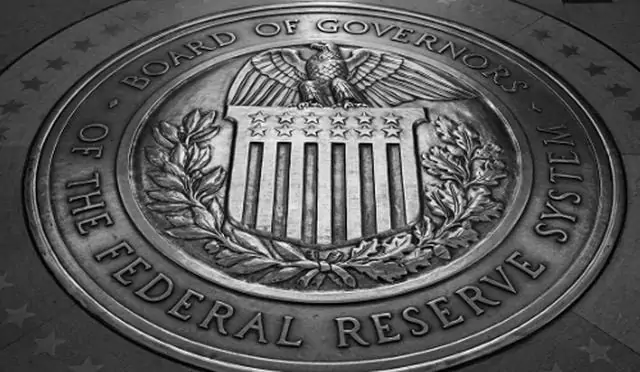Treasury secretary Janet Yellen said rates might have to rise to cool an overheating economy. Shock, horror. Did no one give her Powell’s script?
“It may be that interest rates will have to rise somewhat to make sure that our economy doesn’t overheat,” Yellen said during an economic forum at The Atlantic. “Even though the additional spending is relatively small relative to the size of the economy, it could cause some very modest increases in interest rates.”
It’s not about central bank independence
Economics 101 shouldn’t offend markets or perturb investors – stocks hit session lows off the back of the remarks. But this was seen as a significant remark since it is a break with the Fed’s new policy stance. Now what’s she’s saying is demonstrably true: central banks raise rates to stop economies from ‘overheating’, since this tends to lead to bad things like inflation and misallocation if capital. It’s the kind of thing central bankers would normally say in normal times to signal a tightening cycle is imminent. But we are not in normal times and the Fed has been hammering its message home that its goal is not to quell forecast inflation, but to get back to full employment come-what-may. Some will flag the potential incursion into monetary policy by the Treasury as big no, but in this instance it’s not about central bank independence – Yellen is far too well versed in this topic and far too academic in her approach to be trying to strong arm the Fed.
But it’s very much the antithesis of the way the Fed has been playing things since the pandemic. We’ve all kind of assumed the Fed is happy to let the economy run hot, because it’s implicitly said so: employment is the goal, inflation can be overlooked until enough people have jobs. Now many of us have questioned the sustainability of such a pivot in policy and break with the traditional central bank approach, which has always been to remove the punch bowl before the party got out of a hand (overheating). But we’ve assumed that the Fed was so all-in it wouldn’t change course.
Of course, Janet Yellen is no longer ‘the Fed’. That’s now Jay Powell’s purview. Her comments – seen in isolation – are just the same in reverse as Mario Draghi’s persistent calls for economic, structural and fiscal reform in the EU. But she was the Fed chair so her words carry weight. Moreover, Yellen and Powell have been singing from the same hymn sheet – they’re not at odds on this, which could lead some to think it’s part of the ‘masterplan’.
Janet Yellen: interested outsider or Fed mole?
So, the question for market watchers is whether what the Treasury says about monetary policy is all that important. Yellen looks more like an interested outsider than a Fed mole. I don’t think it was choreographed to signal a Fed taper. I think it was a genuinely held belief that multi-trillion-dollar stimulus and infrastructure spending coming at a time of a major cyclical recovery and zero percent interest rates could lead the US economy to get a bit warm. Coming from a central bank background, it’s natural for her to think that ‘well we need to spend this money now, so rates might need to go up to compensate for all this extra money we’re printing at a later date’. It’s not, in my view, scripted policy manoeuvring. Just sensible observation – the Fed could do with this.
Indeed, Yellen later made these comments at the Wall Street Journal’s CEO Council Summit: “It’s not something I’m predicting or recommending – If anybody appreciates the independence of the Fed, I think that person is me, and I note that the Fed can be counted on to do whatever is necessary to achieve their dual mandate objectives.”
Market reaction? Rates were unmoved, with the benchmark US 10-year still nestled around 1.60% but richly priced tech stocks fell, leaving the Nasdaq down almost 2%, which would imply that rates might not be moving at the short end (I.e. her comments are not a taper signal), but investors do think cyclical and value areas of the market warrant more attention (rotation).
If anything has been clear about the last few months, it’s that some corners of the market that have been overlooked by investors are gaining more kerb appeal as inflation expectations and nominal yields pick up. Yellen’s comments only further underline this trend.






















